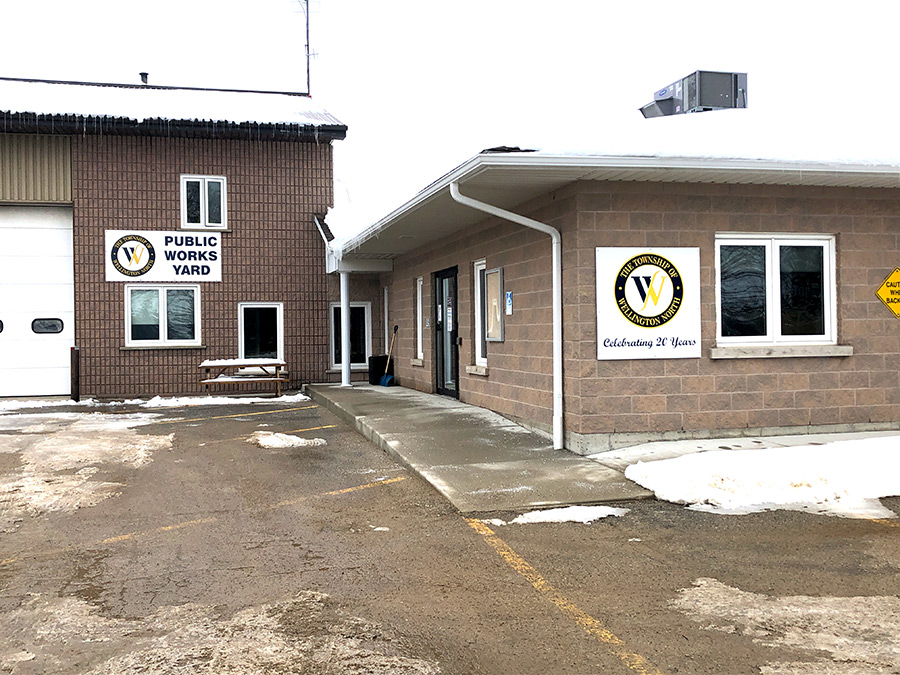WELLINGTON NORTH – Council here recently backed an Association of Municipalities of Ontario (AMO) paper addressed to Ontario Attorney General Doug Downey in 2019, taking issue with how municipalities are tapped for reward payments in lawsuits involving liability.
Mayor Andy Lennox called the issue “top of mind” last month.
In Ontario, municipalities operate under a common law principle of “joint and several liability,” meaning a municipality can end up having to pay out significant payments awarded in liability lawsuits, even if found minimally liable, simply because municipalities have larger insurance policies and a tax base to squeeze.
A simplified example: if there are three defendants, including the municipality, involved in a personal injury lawsuit but the other two defendants are unable to cover the amount awarded by a court – despite being more responsible – the municipality would be forced to pay up and cover the shortfall.
AMO, an organization advocating for the province’s municipalities, believes there’s a better way to determine who pays what and has been voicing such concerns, since refreshed in the 2019 paper, to the provincial government for several years.
Last month, the association renewed its focus on the issue and called on municipal councils to show their support.
“It is entirely unfair to ask property taxpayers to carry the lion’s share of a damage award when a municipality is found at minimal fault, or to assume responsibility for someone else’s mistake,” the AMO paper states.
It argues municipalities have become “litigation targets” and exorbitant costs of going to court are forcing out-of-court settlements “for excessive amounts” even when a municipality is found to have as low as one per cent responsibility in a matter.
The system, says the association, translates not only into a poor use of taxpayer dollars better spent on municipal services, but also higher premiums because there are fewer carriers in the market willing to take on the risk of insuring a municipality.
According to findings from municipalities surveyed by AMO, between 2007 and 2011, liability premiums increased by over 22%.
In 2011, insurance costs across the province totalled $155 million, over half of which ($58 million) was made up of liability premiums.
In Wellington North, the yearly premium package for 2015 was around $167,000, according to township treasurer and finance director Adam McNabb. Over the span of seven years, premiums have increased by nearly $100,000, reaching $264,081 for the current 2022-23 term.
To address the rising cost of insurance and potentially significant payouts, AMO presents several suggestions in its paper for how the current system could be reformed by correlating the dollar amount a municipality is on the hook for with its fault, known as “proportional liability.”
But if other defendants cannot pay, then a person or plaintiff awarded money – someone potentially left with catastrophic injuries – could be hung out to dry.
Craig Reid, AMO senior advisor of policy and government relations, acknowledges the problem and said the association has been calling for the establishment of a catastrophic loss fund.
“Something that would be available to cover off those plaintiffs that are truly experiencing long-term health care costs and a loss of economic ability,” he explained.
“We’re overdue for a conversation with the government and a public conversation about what system we need in place that best serves the interests of Ontarians,” Reid said.
Perth-Wellington Progressive Conservative MPP Randy Pettapiece twice introduced a motion supported by at least 200 municipalities – once in 2014 and again in 2015 – to get the province talking about exactly that, but the political will never materialized.
“This is something that municipalities have been asking for, for a long time,” Pettapiece said of reform.
The AMO paper also calls on the province to address six other areas of concern, including the establishment of a provincial-municipal working group to make recommendations to the attorney general.
Three years ago at a Rural Ontario Municipal Association (ROMA) conference, Ontario Premier Doug Ford committed to addressing municipalities’ concerns, but beyond an un-released review conducted in 2019, little has happened until recently.
Unable to find a clear connection between the current system and rising premiums, Downey, the current attorney general, announced during this year’s ROMA conference that a taskforce would produce a technical review on the matter.
Pettapiece said it was the most action he’s seen on the file in decades through party cycles and his own government’s cabinet shuffles, and he is hopeful for momentum despite an approaching provincial election jostling priorities.
“I would suggest that if anybody dropped it, they’re going to have a lot of negative feedback,” Pettapiece said.
“Nothing has been done even though there’s been pressure on governments to do it so let’s get everybody at the table, hash it out and try to get some kind of a resolution.”
Reid said AMO is “cautiously optimistic.”
“It’s really one of those wicked problems that we need to solve,” he said.




